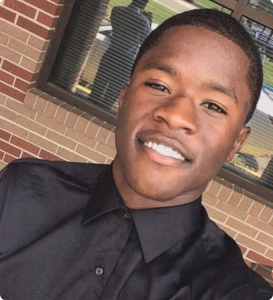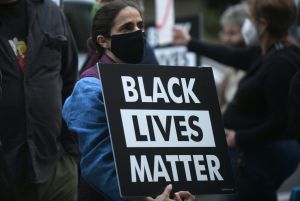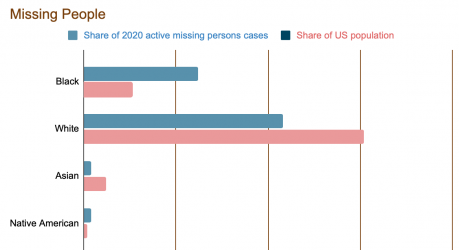Jelani Day was his name, but his family and friends referred to him as JJ. Many people don’t even know he exists…
Why?
The media shows that it does not care about brown or black people on a regular basis.
The only reason we have recently learned about Jelani Day is because his family had to push for public attention. That was the point at which he began to earn significant recognition.

Photo by: JUSTICE FOR JELANI DAY FACEBOOK
His mother, Carmen Bolden Day, demanded that authorities treat her son’s case with the same care and haste as Gabby Petito, a 22-year-old white woman who went missing and was eventually found dead.
It makes me incredibly upset that I have not heard much about this in the beginning until I had to search for this information for myself.
On Aug. 24, Day went missing. When he vanished, he was only 25 years old and lived in Bloomington. He wanted to be a doctor when he grew up. His body was discovered floating in Peru’s Illinois River, putting an end to his dreams. His mom, including me, finds it very suspicious that Day was found about 60 miles away from his university.
His vehicle was found in a wooded area with its license plates removed. It was the only tangible clue the authorities discovered in his disappearance, and it is something his mother cannot get out of her head.
As the story develops the coroner has ruled Day’s cause of death was by drowning. Day’s mother clarifies that her son is a good swimmer and was not depressed.
Many cases of missing brown and black people are rarely publicized. Many people despise admitting that this is the reality. But if we do not talk about the reality of injustices, nothing will change. It is unfortunate if you, as a human being, do not see the truth in what I have just said. That distinguishes you as a privileged individual. There are statistics to support this claim.
Research states “Missing-person cases involving people of color in the U.S. are less likely to be solved compared with cases involving white people,” by Jessica Hill by Cape Cod Times.

According to the Black and Missing Foundation, a nonprofit organization that raises awareness about missing people of color across the country, the number of missing people of color is disproportionately higher and their stories are often underrepresented in national conversations and mainstream media.
For many brown/black people, this is the reality; we do not get representation, support or outcries.
No one looks for us because we are not under the importance of the “Missing white woman syndrome.” Missing white woman syndrome is a term coined by social scientists and media commentators to describe the media coverage of missing-person cases involving young, white, upper-middle-class women or girls, particularly on television, as opposed to the alleged relative lack of attention paid to missing women of color, women from lower social classes and missing men or boys.
Many brown and black people do not have a voice to voice their frustration. As a person of color, I will never miss an opportunity to say what the voiceless cannot.
The delay of answers to the occurrences of missing black and brown people is causing frustration among their families. Could you fathom the emotional pain of having a loved one go missing and discovering that the media is uninterested in finding them?
Well, David Robinson, the father of Daniel Robinson, Toni Jacobs, the mother of Keeshae Jacobs, Carmen Bolden Day, the mother of Jelani Day and many more do.

At the end of 2020, the FBI’s National Crime Information Center’s list of active missing persons cases indicated around 90,000 active missing persons cases. In those situations, Black and Native Americans accounted for a higher proportion of missing persons than their entire population in the United States.
Authorities and the media must be held accountable for why POC do not receive the same priority as other people.


